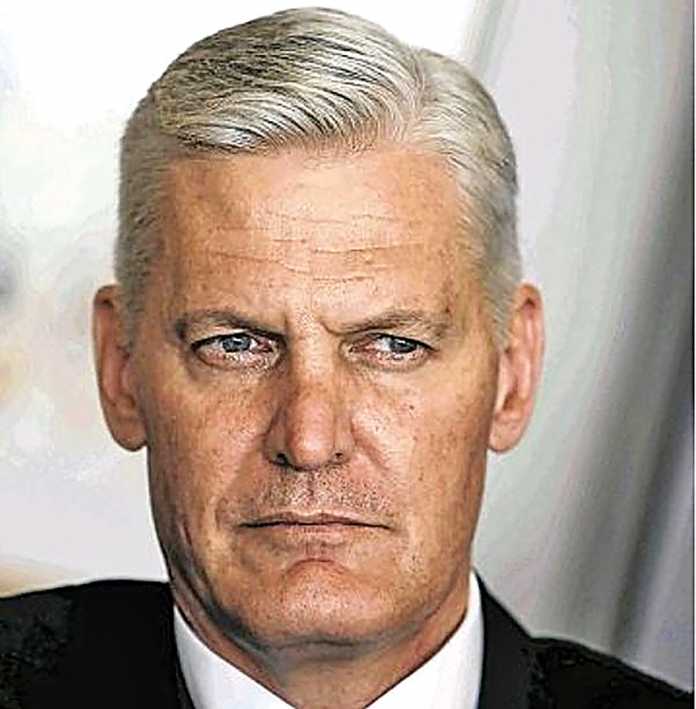Former Eskom group CEO Andre de Ruyter appointed a private security company to guard power stations at a cost of millions of rand without going out to tender, allegedly after receiving “alarmist” advice from a private intelligence firm known to Sunday World.
According to sources, the power utility’s embattled former boss hand-picked ADT Group to do the job in July last year after getting a report from the risk company that there would be civil unrest at various power stations.
Based on the report, Eskom under De Ruyter awarded ADT an emergency contract. However, the unrest did not materialise.
This comes as security cluster sources told Sunday World this week that De Ruyter was not vetted, allegedly because he was dismissive of the State Security Agency (SSA) and its vetting processes, and enlisted the services of a Centurion-based intelligence firm.
Eskom spokesperson Daphne Mokwena confirmed Eskom had appointed ADT, saying the “emergency contract” followed security concerns.
“The security of critical sites like power stations was increased in response to the threat information received by the executive committee. A three-month emergency contract with ADT Group was implemented to safeguard critical Eskom sites.
“The emergency contract, whose value cannot be disclosed, was within the ambit and provisions of Eskom Procurement Procedure 32-1034 and the National Treasury directives for emergency procurement of services,” Mokwena said.
ADT this week failed to respond to a request for comment.
Mokwena added that the power utility did not hire the Centurion-based firm to render any services to Eskom.
“Eskom confirms that it never hired [the firm] to render services.
Furthermore, Eskom had no contractual relationship with [the firm],” said Mokwena.
De Ruyter claimed in a recent TV interview that he was failed by the SSA and other law enforcement agencies because they never followed up on corruption allegations at Eskom.
However, a security cluster source denied this, saying De Ruyter was the one who avoided the SSA and failed to co-operate with them at all levels.
“De Ruyter claims he was let down by the intelligence services. However, intelligence says they have been writing letters asking him to meet them.
He did not respond. De Ruyter ran his own intelligence service on Eskom matters and appointed a private firm.
“Even when he was allegedly poisoned, he ran to the same company for help and not to the state agencies. Even when a bugging device was allegedly found in his car, he ran to [the firm] and not to the state agencies,” said the security cluster source.
Mokwena also confirmed that De Ruyter was not vetted, saying this was due to the pandemic-related delays imposed as part of the national state of disaster, which limited movements and operations.
“Andre de Ruyter was not vetted during his tenure as Eskom group CEO. In 2020, a vetting programme started for newly appointed executive committee members, including De Ruyter.
“Due to the Covid-19 pandemic, there was little to no progress on the processing of vetting applications by the State Security Agency, including Eskom executives. A second round of vetting awareness campaign commenced in June 2022, and all executives, including Andre de Ruyter, were issued with vetting forms by the State Security Agency,” Mokwena said.
The fact that De Ruyter was not vetted raises questions about why he was allowed to take over a sensitive entity like Eskom without any background checks being performed on him.
In terms of government rules and norms, all senior officials including the heads of state-owned enterprises such as Eskom are required to undergo a vetting process before or immediately after being appointed to their positions.
Attempts to reach De Ruyter drew a blank.
The Centurion-based firm requested written questions last week but failed to respond.
New Eskom board chairperson Mpho Makwana referred Sunday World back to Eskom.
SSA spokesperson Mava Scott said: “Please note that the questions you are asking about (the) vetting of individuals are both operational and personal between the agency and the individual concerned.
“As an agency and in terms of our law, we are not at liberty to discuss operational matters such as vetting with third parties.
“We are also not in a position to confirm whether De Ruyter had or didn’t have a private vetting agency, save to say that there is legally only one entity that has the legal mandate to conduct vetting and that is the State Security Agency,” said Scott.
Follow @SundayWorldZA on Twitter and @sundayworldza on Instagram, or like our Facebook Page, Sunday World, by clicking here for the latest breaking news in South Africa. To Subscribe to Sunday World, click here



